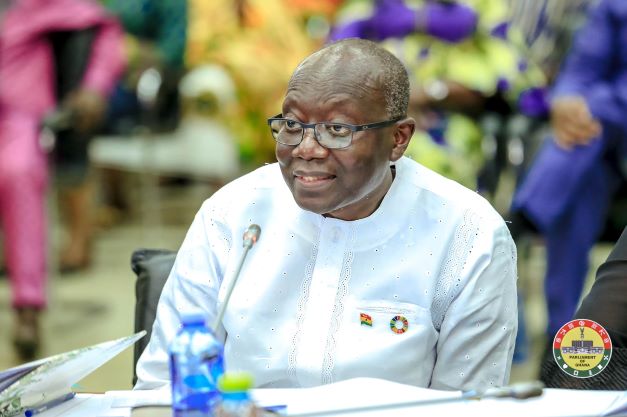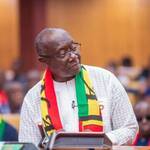The 2023 budget statement and economic policy to be presented to parliament tomorrow is expected to reflect Ghana as a country resolved to place itself firmly back onto the path of debt sustainability and economic growth.
It is projected that the expectations surrounding Ghana’s entry into a programme with the International Monetary Fund (IMF), will impact heavily on expenditure and revenue measures in the upcoming budget.
Analysts are of the view that the presentation of a strong Economic Programme to the IMF will help Ghana secure the best deal possible.
Consultations on the Economic Programme have so far been held with various stakeholders including trade unions, Association of Ghana Industries (AGI), Faith Based Organisations (FBOs), Civil Society Organisations (CSOs), Cabinet and Parliamentarians. Their inputs are reported to have informed the drafting of the 2023 Budget.
Key areas of focus in the budget
The budget is expected to focus on fiscal adjustment, increasing revenue generation, prioritizing value addition and demonstrating commitment to achieving fiscal consolidation.
Measures aimed at restoring macroeconomic stability and managing the escalating cost of living, will also feature heavily in the Budget.
Sources at the Ministry of Finance state that the government’s aims for this budget include achieving strong average growth, completing ongoing government projects across the country, as well as securing social protection programmes.
Fiscal and debt vulnerabilities
Fiscal and debt vulnerabilities keep worsening fast amid an increasingly difficult external environment.
Debt sustainability effects
At the same time, the government’s fiscal efforts to preserve debt sustainability were not seen as sufficient by investors, leading to credit rating downgrades, non-resident investors exit from domestic bond market and loss of access to international capital markets.
Tightening of global monetary policy hits Ghana
Ongoing tightening of global monetary policy conditions which increases the cost of international borrowing has also hit Ghana hard.
40.4% inflation
The economy has suffered significantly since early 2022 with inflation rising from 13.9% in January to 40.4% in October.
The rising prices of goods and services is having terrible impact on the lives and livelihoods of ordinary Ghanaians
Over 50% cedi depreciation, rising fuel prices
The rapid depreciation of the cedi which has lost over 50% of its value since the beginning of the year and rising fuel prices have also taken a heavy toll.
Macro-fiscal challenges, rises in public debt levels and narrowing fiscal space have posed serious challenge to the economy.
The last few months have seen considerable economic uncertainty and challenges.
Expected impact of IMF-supported programme
An IMF-supported programme aims to provide space for Ghana to implement policies which will restore macroeconomics stability and anchor debt sustainability while protecting the most vulnerable parts of the population.
It should help create the conditions for inclusive and sustainable growth and job creation.
Catalytic effect on financing
This will help strengthen policy credibility, alleviate exchange rate pressures, and provide catalytic effect on financing.
Dire consequences of not passing the budget
Any delay or failure to pass the budget will worsen the already bad situation with dire consequences for the ordinary Ghanaian.
The 2023 Budget will contain policies directly aimed at tackling these vulnerabilities.
Property rates to be comprehensively enforced
Information gathered indicates that the government will be focusing on supporting the district assemblies in enforcing efficient property rate collections, to rake in the needed revenue for service delivery at the local level.
Common platform to collect property rate completed
Already, we understand that the Ghana Revenue Authority (GRA) working with the Ministry of Local Government and Decentralisation has completed a common platform to support the district assemblies in efficient property rate administration.
All properties in the country are to be assessed by a team of valuers from the Land Valuation division of the Lands Commission, to determine the rated value as soon as possible, and pave the way for the collection of property rates.
In the 2022 budget, Finance Minister, Ken Ofori-Atta, tasked GRA to begin the processes in January to collect property rates across Ghana.
VAT rate to go up
Per the information gathered, some tax rates including Value Added Tax (VAT) are likely to be increased in an effort to raise more revenue for the state.
Boosting local production
The budget is expected to layout government’s plans to boost local production as part of a comprehensive import substitution policy.
A reduction in imports also means significant reduction in expected revenue from the Customs Division of GRA since import duties constitute the single largest revenue source for government.
This may be relied upon by the government, as justification for the expected revenue measures.
No more BoG Forex support for importation of rice, poultry, fruit juice others
In support of local production, the Bank of Ghana (BoG) has withdrawn foreign exchange support to customers for the importation of certain non-critical or essential goods.
The goods affected include rice, poultry, vegetable oils, toothpicks, pasta, fruit juice, bottled water and ceramic tiles.
LEAP to be expanded
The budget is also expected to protect social intervention programmes and expand Livelihood Empowerment Against Poverty (LEAP) whilst also taking steps to review other social protection programs for efficiency.
Ghana’s Livelihood Empowerment Against Poverty (LEAP) programme provides cash transfers to very poor people, particularly in households with orphans or vulnerable children, the elderly and people with extreme disabilities.
LEAP currently supports 1.5 million extremely poor Ghanaians from 344,023 households
YouStart
The budget will provide details on YouStart which seeks to support young entrepreneurs to gain access to capital, training and technical skills that will enable them start, build and grow their own businesses.
YouStart programme is eligible for starter packs including soft loans ranging from GH₵10,000 to GH₵50,000 as well as standard loan packages of between GH₵100,000 and GH₵400,000 at concessional rates.
Already, YouStart District Entrepreneurship Programme has been launched and YouStart Ghana Jobs and Skills application portal opened to receive applications from potential beneficiaries of a GH₵1 billion entrepreneurship fund.
The government through the YouStart programme intends to build an entrepreneurial nation by providing some of the key enablers that make entrepreneurship a success.
These include access to finance and markets, mentorship, strategic partnership and digital linkages, technical assistance and business advisory support service.
Youth from the ages of 18 – 40 years with minimum education of BECE, willingness to start a business as well as school dropouts already in business are eligible to apply.
- Friday, May 9, 2025 Newspaper Headlines - 9 May 2025
- Adangabey brightens rural kids’ future from his wheelchair - 9 May 2025
- Stanbic donates ICT equipment to UHAS for digital learning - 9 May 2025




